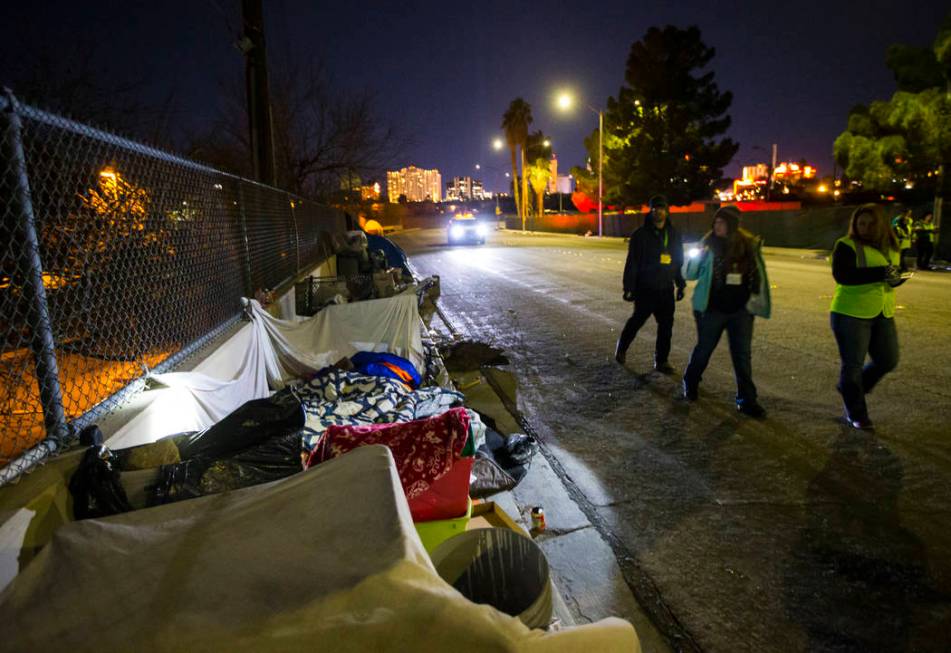Clark County OKs $6.1M to help homeless families with kids

The Clark County Commission voted Tuesday to allocate more than $6.1 million to add hundreds more beds for homeless families with children. And they need every dollar they can get.
“By state, we have the fewest affordable and available rental homes in the country,” Assistant County Manager Kevin Schiller said during a presentation to commissioners. “It’s a national crisis, and at the top of the chain we sit there, in terms of how we address it.”
The money, from marijuana business license fees, was awarded to HopeLink of Southern Nevada, HELP of Southern Nevada and Lutheran Social Services of Nevada and is expected to add 594 beds in mostly short-term rentals.
That’s more than double the number of beds available now, said Mike Pawlak, the county’s director of Social Service. The money will be used also to hire six more case managers. The goal is also to help reunite families or prevent parents from losing their children to the county system when they become homeless, he said.
“Essentially, our system has a bottleneck with about 200 families, and we said we would come back with an intervention. This does that,” Pawlak said. “Our strategic plan was to empty the queue for those families with children that are waiting to be housed.”
Pawlak’s presentation said dwindling federal investments, rising construction costs, rising rents and job growth in low-wage occupations contribute to the housing problem.
The commission’s vote is part of a plan help the county’s roughly 6,000 unsheltered homeless.
Last month, it directed nearly $1.8 million in marijuana business license fees to open 76 new beds for young homeless people at the Shannon West Homeless Youth Center and 60 new beds for those with medical issues after they’re discharged from hospitals.
Commissioners have reserved $9.7 million in projected marijuana fees for homeless initiatives in fiscal year 2020.
The county has 503 units under construction at six affordable housing apartment complexes and about 700 more units planned in the near future. But there is still a shortage of about 70,000 low-income units in the county, Schiller said.
Commissioners also discussed ways to spur developers to partner with the county and to acquire land to build more affordable housing.
Commissioner Lawrence Weekly said he was excited about the board’s efforts and the opportunity to “set precedent” addressing the county’s affordable housing crisis.
“This board understands that one size does not fit all,” he said of the vote. “We did something epic here today. We’re on the path for something even more epic.”
Contact Briana Erickson at berickson@reviewjournal.com or 702-387-5244. Follow @ByBrianaE on Twitter.